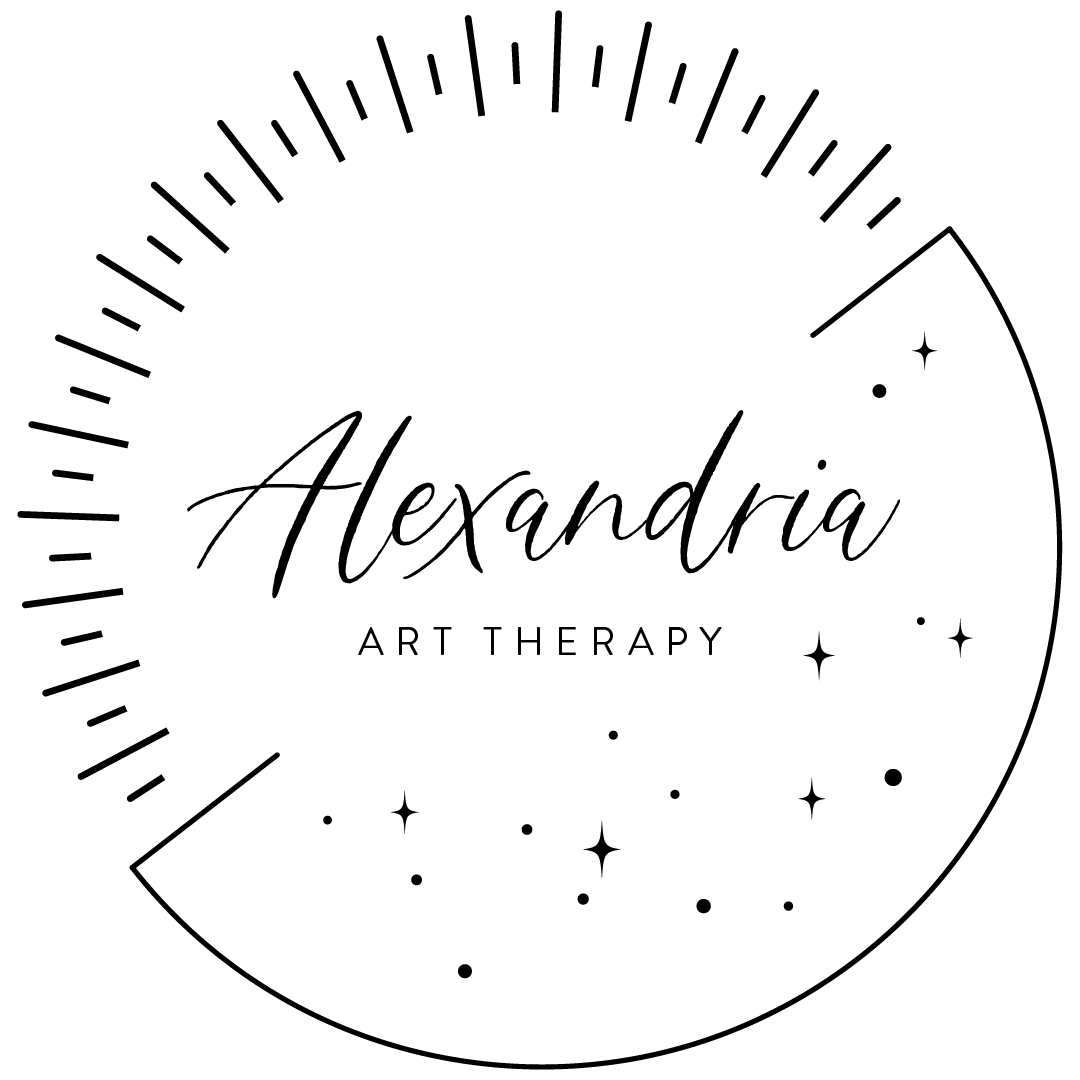Do I have to make art in session?
Not necessarily. Sometimes art therapy sessions include very little art making. You and your therapist will work together to determine the structure of your sessions.
What is the difference between an art therapy session and a counseling session?
Both art therapy and counseling sessions provide the opportunity for you to explore your thoughts and feelings while working towards goals such as self-improvement, decreasing distressing symptoms, and increasing healthy coping strategies. Art therapy uses the process of making art in session as a way to communicate rather than talking throughout the entire session. Artwork made in session provides a tangible representation of your experiences that can be explored further through imagery and words.
What if I’m not a good artist?
Regardless of artistic skill, everyone can benefit from art therapy. All sessions are tailored towards your needs and no artistic skill is required to participate in art therapy. The purpose of making art in session is to create imagery that will communicate your thoughts and feelings rather than creating something that looks “good.” Your art therapist will guide you through the process.
What ages do you work with?
We currently provide services kids (6+), teens, and adults.
Are you LGBTQIA+ friendly?
Yes, Alexandria Art Therapy is a LGBTQIA+ safe space.
Are your services covered by insurance?
No, we are out of network for all insurance companies.
At your request, your clinician will provide a receipt of services to submit to your insurance company for out of network reimbursement after paying for sessions out of pocket. It is important that you check with your insurance company prior to beginning services to determine your plan’s out of network coverage. Alexandria Art Therapy cannot guarantee reimbursement.
Some questions to ask your insurance provider:
What out-of-network mental health services will my plan cover?
What is my deductible? How much must I pay out of pocket before receiving reimbursement?
How many sessions per year are allowed under my out-of-network coverage?
Is telehealth covered differently than in-person sessions?
What is the difference between an art therapy session and a creative arts workshop?
Art therapy sessions are ideal for someone who is interested in looking deeper into thoughts and feelings, creating a life shift, or improving mental health. Creative arts workshops are a fun, relaxing experience in which you will learn a variety of creative techniques to use for self-care and creativity. While creative arts workshops are may help to improve self-care practices and teach artistic skills that can be used for coping, they are not intended as a therapy group.
Perinatal mental health questions:
Are you trained to work with perinatal mental health?
Yes, Adele Stuckey, LPC, ATR-BC has completed training with Postpartum Support International to support birthing and parenting people experiencing perinatal mood and anxiety disorders.
Navigating the perinatal period as a queer couple presents additional stress factors. Adele works with individuals in the LGBTQIA+ community who are experiencing stress related to the birthing and parenting process.
What is included in perinatal mental health?
Stress during transitions, such as fertility treatment, loss / grief related to pregnancy loss; anxiety, depression, obsessive thoughts, rage, obsessive thoughts, intrusive / scary thoughts, overwhelm, "baby blues" lasting longer than 2 week are considered postpartum symptoms.
I don't want to be a Parent and have never been pregnant. Will you work with me?
Yes, Adele works with people regardless of their ability or desire for children.
stress / trauma questions:
What is trauma?
Trauma refers to an experiences that is perceived as life threatening, unsafe, or overwhelming. Since the role of perception is so important in trauma, each individual experience may vary widely. Experiences may vary in symptoms, severity, and duration.
Does my trauma have to be recent?
We can focus on traumas and stressors that are recent, or from your more distant past. The important thing is that you are considering focusing on your growth and healing.
Do I have to have post-traumatic stress disorder (PTSD)?
Though a widely used term, post-traumatic stress disorder (PTSD) is only one potential outcome and cluster of symptoms associated with trauma. Trauma is unique and can so are it’s impacts. You do not have to have PTSD or suspect you have PTSD to seek therapy for trauma and stress symptoms.
What if I don’t think my trauma is “big” enough?
It can be easy to compare yourself to others around you to put your experiences in context. Many people believe others “have it worse” and their response to stressful experiences is out of proportion. When it comes to trauma and stress it is important to remember the importance of perception, and how personal the impact and symptoms can be. If you feel like you would benefit from additional support and therapy services working with any of our clinicians may be supportive.
For additional questions or to schedule a consultation, please reach out.


